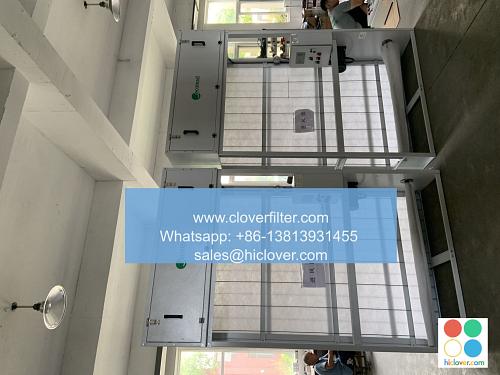The Benefits of Air Filters in Medical Facilities: Patient-Centered Care

Air filtration systems play a crucial role in maintaining a healthy environment in medical facilities, ensuring patient-centered care and infection control. The importance of air filters in hospitals, clinics, and other healthcare settings cannot be overstated, as they help to remove airborne pathogens, allergens, and particulate matter that can compromise indoor air quality and put patients, visitors, and staff at risk.
##
Air Quality and Patient Health
Poor indoor air quality has been linked to a range of health problems, including respiratory issues, allergies, and infections. In medical facilities, where patients may have compromised immune systems, the risk of airborne transmission of diseases is particularly high. Effective air filtration systems can help to mitigate this risk, creating a safer environment for patients and reducing the burden on healthcare resources.
##
Key Application Areas
Air filters are used in various areas of medical facilities, including:
* Operating rooms: where sterile environments are essential to prevent surgical site infections
* Intensive care units: where patients are more susceptible to airborne pathogens
* Patient rooms: where comfortable and healthy environments are essential for recovery
* Pharmacies: where air quality control is critical to prevent contamination of medications
##
Benefits of Air Filters in Medical Facilities
The benefits of air filters in medical facilities are numerous, including:
* Improved indoor air quality: reducing the risk of airborne transmission of diseases
* Enhanced patient safety: protecting patients from hospital-acquired infections
* Increased patient comfort: creating a comfortable and healthy environment for recovery
* Reduced absenteeism: protecting staff from airborne illnesses and reducing absenteeism
* Compliance with regulations: meeting infection control and indoor air quality standards and guidelines
##
Choosing the Right Air Filter
Selecting the right air filter for a medical facility is critical to ensuring effective air quality control. Factors to consider include:
* Filter efficiency: choosing a filter with a high minimum efficiency reporting value (MERV) rating
* Filter type: selecting a filter that is suitable for the specific application area, such as HEPA filters or activated carbon filters
* Maintenance and replacement: ensuring that filters are regularly maintained and replaced to ensure optimal performance
By understanding the benefits of air filters in medical facilities and selecting the right filter for the job, healthcare providers can create a safer, healthier environment for patients, visitors, and staff, and provide high-quality, patient-centered care. It seems like you haven’t asked a question or provided any context for me to respond to. Could you please provide more information or clarify what you would like to talk about? I’ll do my best to provide a helpful and direct response. What’s on your mind?

